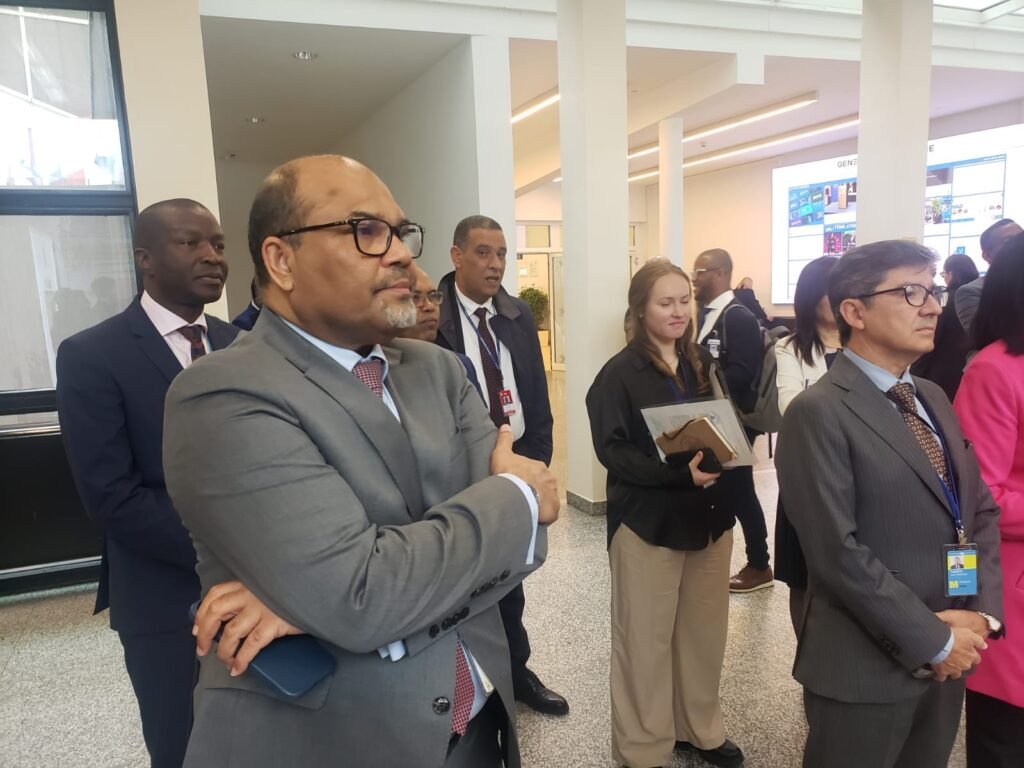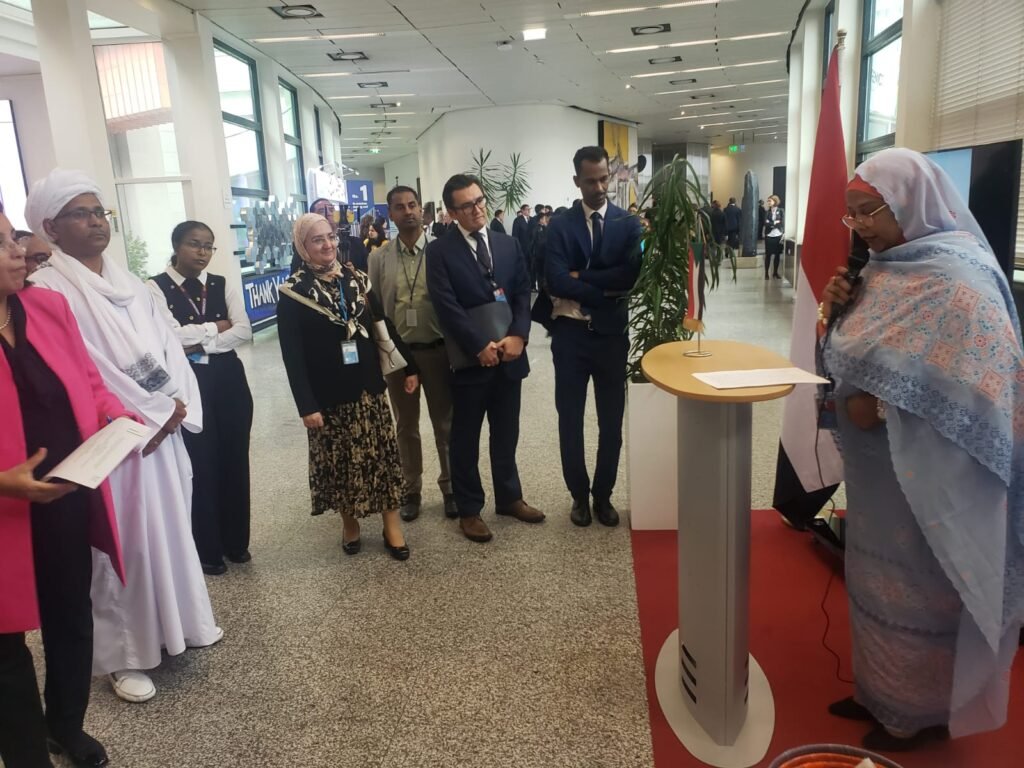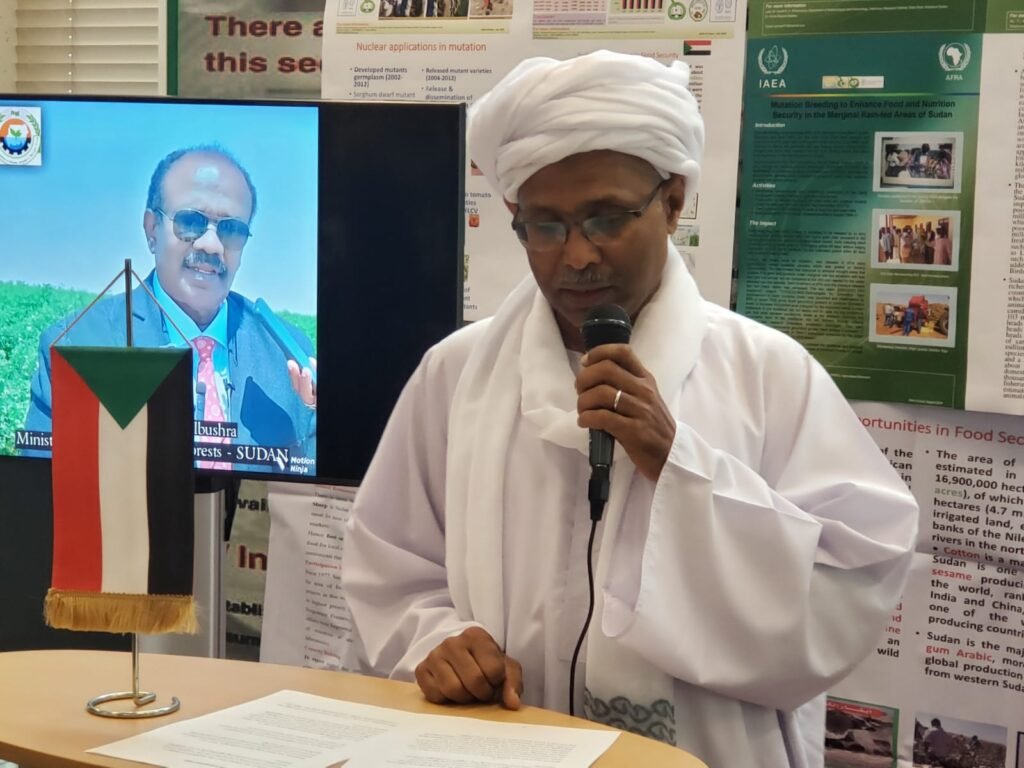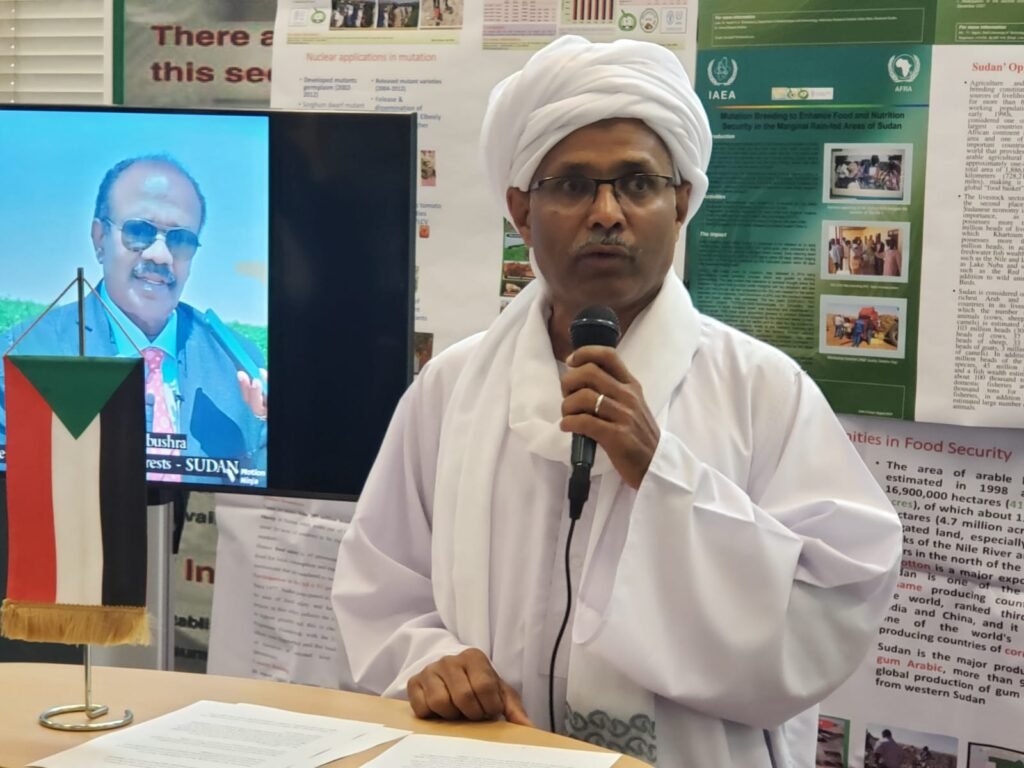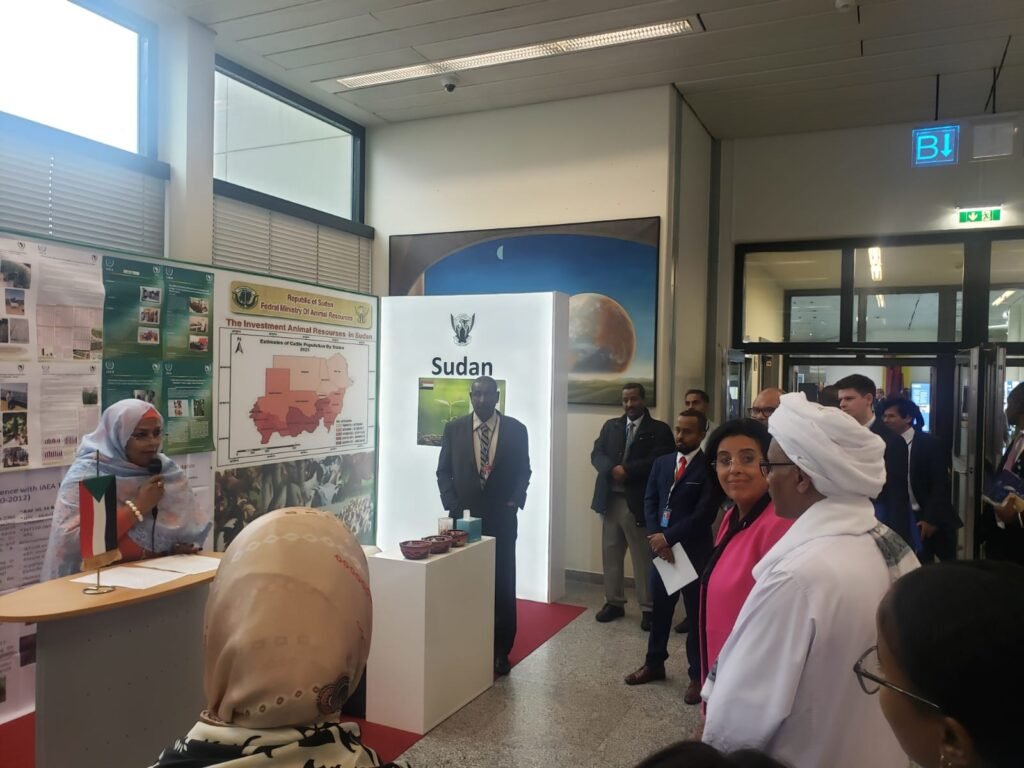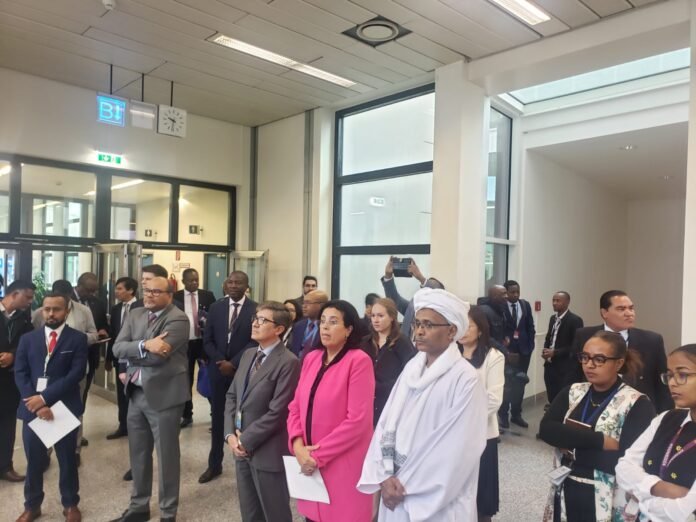Introduction to the IAEA’s Commitment
The International Atomic Energy Agency (IAEA) plays a pivotal role in promoting the peaceful use of nuclear technologies across the globe. Established in 1957, the IAEA aims to advance the socio-economic progress of nations through safe applications of nuclear science and technology, primarily in sectors such as health, energy, and agriculture. Central to its mission is the belief that nuclear technologies can provide sustainable solutions to various challenges, including food security. This is particularly relevant in the context of developing nations, where advancements in agricultural productivity are critical for improving livelihoods and ensuring food availability.
Recently, the IAEA has reaffirmed its commitment to support Sudan in enhancing food security. This support, as highlighted by Dr. Najat Mokhtar during the IAEA general conference, encompasses several initiatives aimed at bolstering agricultural development within the country. The IAEA’s emphasis on aiding Sudan underscores a strategic objective to utilize nuclear technologies to address pressing food security issues. Through applications such as radiation-induced mutation breeding, pest management, and soil fertility optimization, the agency aims to introduce innovative approaches that can significantly increase crop yields and resilience against climate variability.
The significance of this support cannot be overstated, especially in light of the challenges faced by the agricultural sector in Sudan. By integrating nuclear technologies, Sudan has the potential to transform its agricultural landscape, leading to enhanced food self-sufficiency and improved economic stability. The announcement made at the IAEA conference signals a collaborative effort to empower Sudanese farmers with the tools and knowledge necessary to harness the benefits of these advanced scientific techniques. This commitment from the IAEA marks a crucial step towards fostering sustainable agricultural practices that align with global food security goals.
Successful Projects in Agricultural Productivity
The collaboration between Sudan and the International Atomic Energy Agency (IAEA) has led to several successful initiatives aimed at enhancing agricultural productivity through the application of nuclear technologies. One significant achievement has been the development of high-yield and climate-resistant crop varieties, which are essential for overcoming the challenges posed by climate change and enhancing food security in the region. Key crops that have benefited from these projects include wheat, corn, peanuts, bananas, and tomatoes.
Nuclear techniques, such as mutation breeding and radiation-induced selection, have proven to be instrumental in the development of these resilient varieties. By exposing seeds to radiation, plant geneticists can accelerate the natural process of mutation, leading to the emergence of traits that improve yield and resistance to pests and diseases. For instance, the introduction of enhanced wheat varieties through these methods has resulted in higher production levels, helping farmers to meet the increasing demand for food in Sudan.
Moreover, these initiatives have not only aimed to improve the quantity but also the quality of produce. New crop varieties are designed to possess improved nutritional profiles, thus contributing to better diets and overall health within local communities. The focus on staple crops, which are crucial for food security, ensures that the most pressing dietary needs are addressed.
In partnership with local agricultural institutions, the IAEA has facilitated training programs for farmers, equipping them with the knowledge to adopt these advanced agricultural techniques effectively. This capacity-building process is vital in ensuring the sustainability and long-term success of these projects. By empowering farmers with nuclear technology-based solutions, Sudan is steadily advancing towards greater agricultural productivity and enhanced food security.
Capacity Building and Technical Cooperation
The International Atomic Energy Agency (IAEA) has demonstrated a strong commitment to capacity building and technical cooperation in Sudan, particularly in the agricultural sector, as a means to bolster food security. Recognizing the specific challenges faced by Sudan, the IAEA has tailored its support to meet the country’s unique needs, thereby fostering an environment conducive to sustainable agricultural development. This collaborative approach is designed to enhance local expertise and empower Sudanese stakeholders to utilize nuclear technologies effectively for agricultural improvement.
One significant aspect of the IAEA’s support involves extensive training programs aimed at equipping Sudanese professionals with the necessary skills and knowledge. These training initiatives cover various areas, including crop management, pest control, and soil fertility enhancement, ensuring that participants can implement advanced techniques that optimize agricultural productivity. Additionally, the IAEA provides access to vital resources and technologies that catalyze innovative practices, allowing farmers to achieve higher yields and better manage agricultural risks.
Financial support is another critical component of the IAEA’s technical cooperation endeavors. By allocating funding for specific projects, the IAEA facilitates research and development initiatives that address the pressing issues of food security in Sudan. These funded projects often focus on introducing new agricultural methodologies that leverage nuclear techniques, fostering resilience within local farming systems. Furthermore, the agency promotes the establishment of partnerships between Sudanese institutions and international organizations, creating a network of knowledge exchange that further strengthens the agricultural landscape in the region.
Through its comprehensive approach to capacity building and technical cooperation, the IAEA plays an essential role in helping Sudan realize its agricultural potential. By empowering local stakeholders with training, resources, and funding, the IAEA is significantly improving Sudan’s ability to tackle food security challenges and support sustainable agricultural practices that benefit the entire nation.
The ‘Atoms for Food’ Initiative and Future Prospects
The ‘Atoms for Food’ initiative, spearheaded by the International Atomic Energy Agency (IAEA), represents a significant effort to address food security challenges that many countries, including Sudan, currently face. This initiative focuses on utilizing nuclear technologies such as radiation and isotopes to improve agricultural productivity, which is crucial in a country where food shortages often compromise public health and economic stability. In a recorded speech, Dr. Al-Bushra emphasized the promising benefits this initiative could bring, particularly highlighting its potential in enhancing crop resistance to pests and diseases through mutation breeding techniques.
Sudan’s unique geographical location and its diverse climatic conditions provide a fertile ground for implementing these advanced technologies. The country is endowed with vast arable lands, which can be leveraged to increase agricultural outputs significantly. By employing nuclear techniques, Sudan could improve soil fertility and optimize water usage, addressing some of the pressing issues that affect local farmers. Such advancements are not only vital for Sudan’s food self-sufficiency but also play a monumental role in fostering economic development in the region.
The implications of the ‘Atoms for Food’ initiative extend beyond Sudan’s borders, promising benefits for neighboring African and Arab nations that face similar food security challenges. By collaborating with these countries, Sudan can emerge as a regional hub for agricultural innovation and knowledge transfer, thus amplifying the impact of nuclear technology in enhancing food security across the continent. Moving forward, this initiative not only represents a crucial step towards improving food systems but also strengthens partnerships within the region, fostering a sense of collective progress and resilience in tackling nutritional deficiencies.
